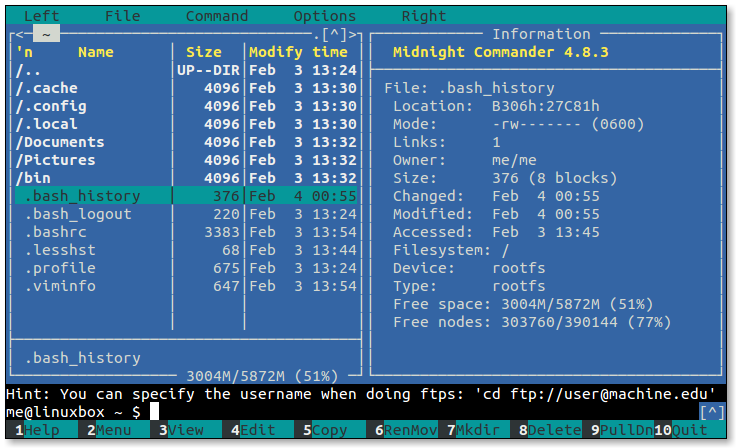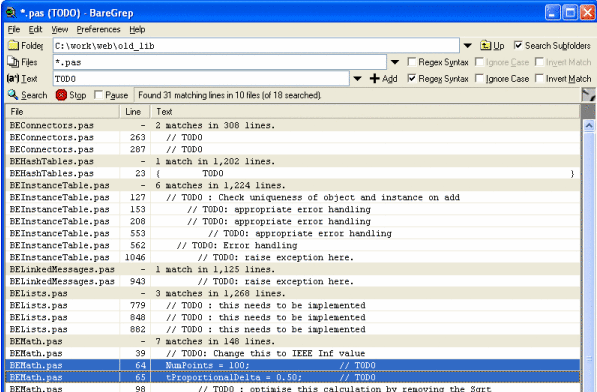

You can exclude more than one subdirectory from the recursive search in the following fashion: grep -r -exclude-dir= serach_term directory_path

grep -r -exclude-dir=dir_name serach_term directory_path I told you, grep is an extremely versatile command. grep -rlw -e 'tecadmin' -e 'https' /var/log 3. Below example will search strings tecadmin and https in all files in /var/log directory and its sub-directories. If you are not in the directory where you want to perform the recursive search, just provide the absolute or relative path of the directory to grep command: grep -r search_term path_to_directory Bonus tip: Exclude a certain directory from the recursive grep searchĮverything seems good but what if you want to exclude a certain directory from the recursive search? There is a provision for that too. You can also specify multiple strings to search using -e switch. Take a look at the output of the -R search in the same example: grep -R recursive search also searches in the linked filesĭid you notice that it gives an additional search result with the linked.txt which is basically a symbolic link and was omitted from the grep search with -r option? The -R is dereferenced search which means it will follow the symbolic links to go to the original file (which may be located in some other part of the system).

So, what's the difference grep -r and grep -R? Only one, actually. There is also a -R option for recursive search and it works almost the same as the -r option. Here's the result: Recursive search with -r option of grep command Here's the recursive search I performed in the previous example to do a grep search in the current folder: grep -r simple. With this option, grep will look into all the files in the current (or specified) directory and it will also look into all the files of all the subdirectories. Grep provides a -r option for the recursive search.

Grep recursive search in all subdirectories of a directory Now that you know that, let's see how you can perform a recursive search with grep so that it also looks into the files in the subdirectories. If you are not in the same directory where you want to perform, you can specify the directory path and end it with /* grep search_term directory_path/*īasically, you are using the wild card to expand on all the elements (files and directories) of the given directory. Search in all files of a directory with grep Since you cannot directly grep search on a directory, it will show "XYZ is a directory" error along with search results. This will search in all the files in the current directories, but it won't enter the subdirectories. The wild card actually substitutes with the name of all the files and directories in the current directory. To search for the word 'simple' in all the files of the current directories, just use wild card (*). Except empty.txt, all files contain the term 'simple' on which I'll perform the grep search. Here's the directory structure I am going to use in this example. Let me show you all this in details with proper examples so that it is easier for you to understand. You may also specify the directory path if you are not in the directory where you want to perform the search: grep -r search_term directory_path You can make grep search in all the files and all the subdirectories of the current directory using the -r recursive search option: grep -r search_term. It only searches in all the files in the current directory. If you want to search all the files in a directory with grep, use it like this: grep search_term * Usually, you run grep on a single file like this: grep search_term filename The content from the files is stored in the hold buffer temporarily, usually used to store a pattern. sed h file1.txt file2.txt file3.txt > merged.txt. Sed command, primarily used for performing text transformations and manipulation can also be used to merge files. However I do not seem to be able to figure it out.Grep is an excellent tool when you have to search on the content of a file. Using sed command to merge multiple files in Linux. I know this might be a stupid question, I apologize in advance. I tried comm -12, awk (e.g awk 'NR=FNR ($1 in a)' file_1.txt file_2.txt > output.txt) The output should look like: apple 5.21 Noun In my opinion, the proposed solution for the same questions should work but unfortunately they do not. Like here and here how can i compare data in 2 files to identify common and unique data? I have two files of which I like to filter out the lines of file 2 that match column 1 in file 1. So I would appreciate any hint or help for what I am doing wrong. I know there are my of the same questions already answered on this platform but I tried all the solutions for several hours and I cannot find my mistake.


 0 kommentar(er)
0 kommentar(er)
